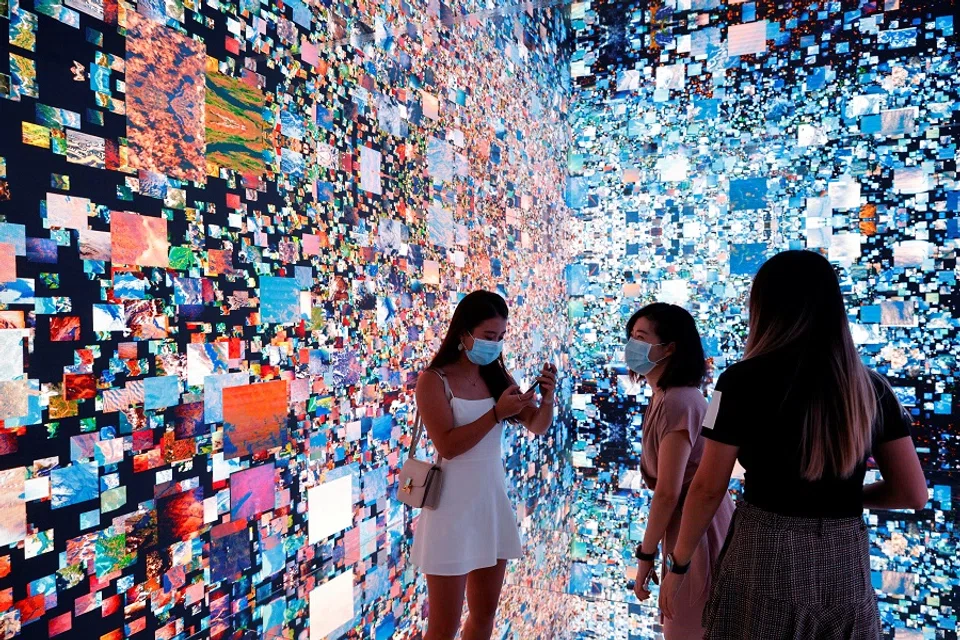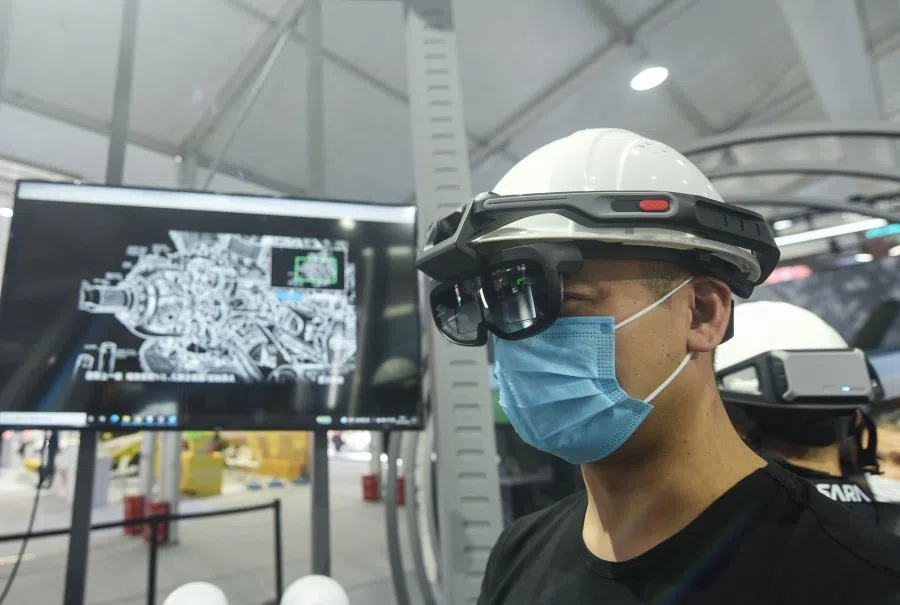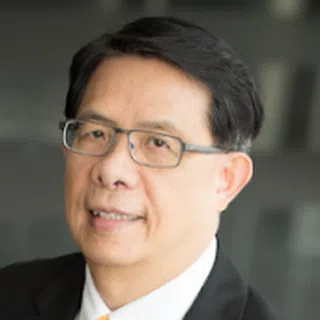Metaverse: A chance to build a better world
Academic Pei Sai Fan says that one should dream big with the metaverse and not only see it as a new avenue of making money. By creating a new virtual universe from scratch, we can make good use of the blockchain-based metaverse to promote an equitable, more transparent and more inclusive rules-based international digital currency and financial system and enhance the global governance system to deal with issues facing all countries. This would require a global approach and China is well placed technologically to actively participate and lead the effort with like-minded nations in creating such a metaverse. It would be a pity if countries squandered such an opportunity to truly build a better world for all mankind.

The term metaverse comes from science fiction author Neal Stephenson's 1992 novel, Snow Crash. The novel describes a digital space beyond reality where humans can overcome geographical boundaries and interact with each other through their respective avatars. The term metaverse consists of "meta" meaning "beyond", and "verse" meaning the "universe". Put together, metaverse means "beyond the universe", which refers to an multi-dimensional virtual world constructed based on the physical world through technological capabilities, and which exists in parallel to the physical world. With a digital identity or an avatar, people in the real world can enter and live in this virtual world, which can also facilitate fully functioning social and economic systems.
Following the rapid development of digital technologies such as virtual reality (VR), augmented reality (AR), the fifth generation mobile network (5G), cloud computing, and the Internet of Things (IoT), the gap between the virtual world and physical world is fast shrinking, and the user's sense of participation and immersion in the virtual digital world is also being greatly enhanced.
As the metaverse narrows the distance between commercial brands and consumers and offers a better virtual experience for users, new opportunities and business models for the commercial world are created. For example, combining gaming and social interaction promotes the rapid growth of the virtual reality gaming market, while the non-fungible token (NFT) provides a viable path to the digitalisation of assets of the physical world. As digital assets in the metaverse, NFTs also create and promote the circulation and trading of new and encrypted digital products, including any type of unique object such as artworks, collectables, game content, music, tickets, or even a tweet posted by a person at a certain point in time.

Hence, technology and internet giants have recently increased their investments in the metaverse, which is becoming the next important development for the technology and internet industries. Facebook founder Mark Zuckerberg recently announced that the company will be renamed "Meta" as he strives to transform the social media company into a metaverse company in the next five years. Other technology and internet giants such as Microsoft, Tencent, ByteDance and Baidu are also exploring the seemingly limitless business opportunities brought about by the metaverse.
The long-term sustainable development of the metaverse is in creating a transborder and transregional economic system where collaborative division of labour thrives...
Opportunities to transform the physical world
However, I am hoping that the metaverse does not only bring about new business opportunities but also more meaningful and creative ways of thinking that can profoundly improve or even transform the world we currently live in.
Currently, discussion about the metaverse mainly revolves around virtual games, entertainment and social interaction. But in fact, the metaverse can have a much wider impact in the world of business, industries, trade and society. The long-term sustainable development of the metaverse is in creating a transborder and transregional economic system where collaborative division of labour thrives, such that everyone is willing to contribute to and create value for the metaverse and get to enjoy his/her rightful benefits. The metaverse establishes a consensus-based value system upon which an equitable and inclusive economic system is formed. This system binds everyone together, and everyone benefits from the metaverse.
The Big Bang theory posits that the current universe we live in was created some 13.82 billion years ago because of a massive explosion, while others believe that God created the world. With the use of technology, humans now have the chance to create a brand-new metaverse! We should seize this once-in-a-lifetime opportunity to leverage the metaverse's virtual world of limitless imagination to create previously unthinkable possibilities and opportunities for a shared future of mankind.

For example, various experiments and exchanges that humans cannot carry out in the real world can be done in the metaverse to help resolve the conflicts between countries in the physical world, reform and improve the global governance system, resolve the imbalances and sufferings faced by mankind such as income and social inequality, explore new directions for economic and social development, and so on. The metaverse should not be seen merely as a new business frontier and money-making tool.
...we should make use of the blockchain-based metaverse to promote a more equitable and more inclusive rules-based international digital currency and financial system, in contrast with a sovereign-controlled and power-based financial system in the current world.
International monetary and financial system
After the Second World War, the US dollar-centric international monetary system and US-led multilateral international financial institutions such as the International Monetary Fund and the World Bank created and strengthened the global financial hegemony of the US. In Austrian-British economist Friedrich Hayek's 1976 book entitled The Denationalisation of Money, Hayek explained the rationality of replacing the government's monopoly over the issue of fiat money with other competitive currencies. In Satoshi Nakamoto's 2008 paper "Bitcoin: A Peer-to-Peer Electronic Cash System", Nakamoto suggested using public blockchain-based decentralised applications to provide peer-to-peer financial services to enhance financial democratisation and inclusiveness.
Bitcoin is a fungible cryptocurrency. Its core value lies in the fact that its technology, valuation, trading and circulation have been made possible by a consensus-based and transnational rules-based system that involves millions of nodes. Along the same vein, we should make use of the blockchain-based metaverse to promote a more equitable and more inclusive rules-based international digital currency and financial system, in contrast with a sovereign-controlled and power-based financial system in the current world.
Globalisation
The pandemic has led to countries implementing quarantines and closing borders. The global supply chain has been severely hit, with cross-border production practically at a standstill. International trade and investment are also stuck, while geopolitical conflicts have led to the rise of protectionism and anti-globalism.

If a global digital economy can be built in the metaverse, it can play the important role of continuing to uphold the spirit and push for the development of globalisation. The global digital economy can ensure that information, digital resources and assets continue to circulate within the global system and boost the efficiency of the global economy, so that there is global economic growth and technological improvement which safeguards the common interests of the international community.
The global governance framework
The metaverse can conduct experiments to improve or even revolutionise the current global governance system. Since World War II, there has been a fundamental shift in the global economic and trade landscape. The economies and trade volumes of developing countries account for an increasing percentage of the global aggregate, as best evidenced by the BRICS countries - Brazil, Russia, India, China, and South Africa. The emerging developing countries have become a significant force on the world stage, but they still lack a significant and respectable voice in the current global governance system. In contrast, the economic and international influence of the US has been on the decline in recent years and the US cannot and should not sustain its unipolar hegemonic rule for long.
What works for global governance in the virtual world of the metaverse hopefully can also be learned, translated to, and replicated in the real world...
As metaverse-related technology matures, and when countries and organisations are also playing an active part in the metaverse, it might be possible to replicate the blockchain-based concept of a decentralised autonomous organisation (DAO), and create a completely new "autonomous United Nations" in the metaverse, uninfluenced by any centre of power, where all countries or organisations as nodes in DAO have equal voting right regardless of its physical size or strength, to address common digital threats and challenges facing the virtual world such as cyber security, digital finance and digital inequality etc.
What works for global governance in the virtual world of the metaverse hopefully can also be learned, translated to, and replicated in the real world, so that countries likewise can cooperate, coordinate and collectively address the global threats and challenges such as geopolitical conflicts, climate change, food security, and social inequality etc, so to create a better world for the globe and a new chapter for human civilisation.
Building the metaverse calls for resources and leadership from various countries
Building a metaverse that will truly connect the world is a massive feat of engineering that calls for global connectivity of super speed and efficiency of a new web, and the ability of the cloud to store and process massive data volume, smart computing and so on. Currently, no single company or organisation can provide everything needed to build and control the metaverse due to the huge digital infrastructure and facilities involved - neither Mark Zuckerberg's "metaverse" nor Ma Huateng's "realistic internet" (全真互联网) can do that!

In recent years, China's priority has been to speed up digitalisation and build a digital China. This has also been written into China's 14th Five-Year Plan as its vision and aim by 2035, including initiating US$1.4 trillion worth of public spending on "new infrastructure construction" (新基建), namely, key digital infrastructures such as the 5G network, industrial internet, data centres and artificial intelligence.
China's digital economy contributed 40% of its GDP in 2020, a figure that is way ahead of most countries. According to the statistics provided by the Ministry of Industry and Information Technology (MIIT), China built around 580,000 5G base stations in 2020, with a projected 4.38 million to be built by 2025. The development and construction of 5G and WiFi 6 facilities and cloud servers will enable efficient multi-device and multi-user connectivity, leading to the all-encompassing Internet of Everything (IoE).
China, therefore, has the great potential to play an active role and lead the effort along with other like-minded powers to build a metaverse...
Also, the Blockchain-based Service Network (BSN) developed under the leadership of State Information Centre, a public institution affiliated to the National Development and Reform Commission (NDRC), has set up in over 130 cities around the world blockchain-related data storing nodes of BSN. The goal is to use blockchain technology to build a secured global infrastructure network that will connect the whole world. Many major international blockchain service providers, financial institutions and R&D agencies have built connections with the BSN alliance of developers.
As many countries are planning to roll out their central bank digital currencies (CBDC) over the next few years, BSN will connect with many well known international banks and technology companies and plan to start building a global payment and accounting network based on the CBDCs to be issued by central banks.
China, therefore, has the great potential to play an active role and lead the effort along with other like-minded powers to build a metaverse that will truly connect the world, advance the common interest of all nations, and promote a shared future for mankind.
Related: A metaverse with Chinese characteristics? | A metaverse with Chinese characteristics? | Why mobile gaming is important for maintaining social stability in China | Metaverse: A bubble that could soon burst? | Will overregulation kill Chinese firms' metaverse ambitions?





